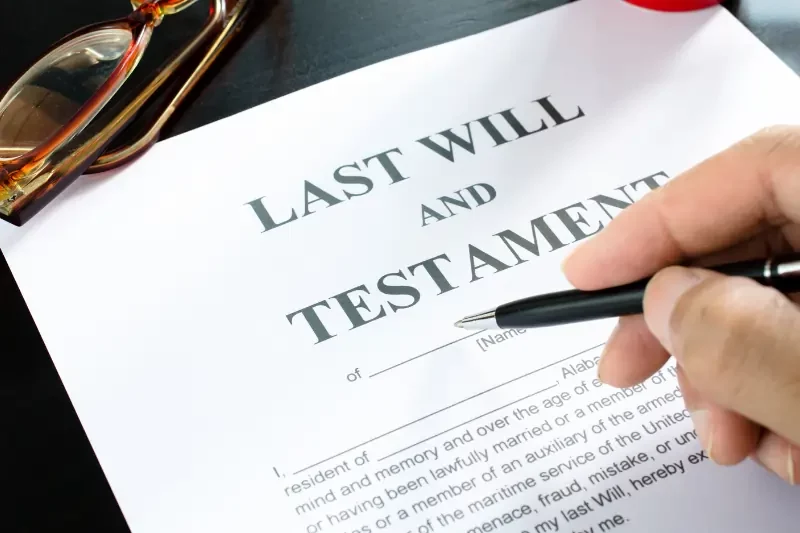
Introduction to Estate Planning
Planning for the future isn’t always comfortable, but it’s one of the most caring things you can do for your loved ones. Estate planning helps make sure your wishes are carried out and your family is protected after you’re gone. Many homeowners in Georgia put off this important task, not realizing how much stress it can prevent. If you’re facing challenges with property ownership or need to make quick changes to your situation, cash home buyers in Columbus, GA, like Assured Property Solutions, can help you simplify your assets before beginning the estate planning process.
Estate planning isn’t just for the wealthy. If you own a home, have savings, or want to make sure specific items go to certain people, you need an estate plan. This guide will walk you through the basics of property wills and help you understand the steps to protect what matters most to you.
What is a Property Will?
A property will (commonly called a last will and testament) is a legal document that outlines how you want your assets distributed after your death. It’s a written record of your wishes regarding your property, money, and who should care for minor children if necessary.
Your will covers real property (like your home) and personal property (furniture, jewelry, cars, and bank accounts). Without this important legal document, state law will determine who gets what, which might not match your wishes.
A valid will must meet certain requirements:
- It must be created by a person of sound mind
- It must be signed by the person making the will
- It must be witnessed by two witnesses (in most states, including Georgia)
- These witnesses should be disinterested (people who don’t benefit from the will)
Importance of Having a Will
Creating a will is one of the most important steps in responsible homeownership. Here’s why:
- You decide who receives your assets
- You can name guardians for minor children
- You choose your executor (personal representative)
- You can reduce family conflicts
- You might minimize certain taxes and probate expenses
Without a will, your estate will be distributed according to intestate succession laws, which may not reflect your wishes. For example, if you’re part of a married couple but want specific gifts to go to other family members or loved ones, those wishes won’t be honored without proper documentation.
If you’re facing financial challenges with your property and considering options like “we buy houses in Midland” services, resolving these issues before finalizing your estate plan can make the process smoother for everyone involved.
What are the Four Basic Types of Wills?
There are several types of wills, each serving different needs:
- Simple Will – A basic document that distributes property to beneficiaries, names an executor, and may name guardians for minor children.
- Testamentary Trust Will – Creates a trust upon your death and can help manage assets for beneficiaries who may not be ready to manage money on their own.
- Joint Will – A single will for two people, typically spouses, outlines how assets pass to the surviving spouse and then to other beneficiaries after both deaths.
- Living Will – While not a property distribution document, this important complement to your estate planning documents outlines your medical wishes if you become incapacitated.
Other Types of Wills
Beyond the basic four, there are other specialized wills:
- Holographic Will – Handwritten by the grantor and not always witnessed. These are only valid in some states and may face challenges in probate court.
- Oral Wills – Spoken declarations of how you want your property distributed. These are rarely recognized and only in limited circumstances.
- Pour-Over Will – Works with a living trust by “pouring” any remaining assets into the trust upon death.
For homeowners who need to “sell my house fast in the Fortson” area, simplifying your real estate holdings before creating your will can make the estate planning process more straightforward.
What a Will Covers
A properly drafted will addresses many aspects of your estate:
- Real property (homes, land)
- Personal property (jewelry, furniture, collections)
- Financial assets (bank accounts, investments)
- Digital assets (online accounts, cryptocurrency)
- Guardianship for minor children or dependents
- Care for pets
- Specific bequests to individuals or organizations
- Executor appointment
Your will does NOT typically cover:
- Life insurance proceeds with designated beneficiaries
- Retirement accounts with beneficiary designations
- Property held in joint tenancy or as a co-owner with rights of survivorship
- Assets placed in a revocable trust
Understanding how long it takes to sell a house in Georgia might be relevant if your estate includes property that will need to be liquidated. The probate process often involves selling real estate, which can complicate matters for your heirs.
Choosing an Executor
Your executor (also called a personal representative) is responsible for carrying out the terms of your will. This person will:
- File your will with the probate court
- Notify beneficiaries
- Pay outstanding debts and taxes
- Distribute assets according to your wishes
- Handle the sale of property if necessary
Choose someone who is:
- Trustworthy and organized
- Financially responsible
- Willing to serve in this role
- Likely to outlive you
- Familiar with your wishes
Many people choose their spouse, an adult child, another family member, or a close friend. You can also name a professional executor, like an attorney. Consider naming an alternate executor in case your first choice is unable to serve.

Storing and Updating Your Will
Once you’ve created your entire will, proper storage is crucial:
- Keep the original will in a secure but accessible location
- Tell your executor where to find your will
- Consider giving copies to your attorney and executor
- Avoid keeping the only copy in a safety deposit box that might be sealed upon death
Your will isn’t a “set it and forget it” document. You should review and potentially update it after:
- Marriage or divorce
- Birth or adoption of children or grandchildren
- Death of a beneficiary or executor
- Major changes in assets or financial situation
- Moving to a new state
- Changes in tax laws
- At least every 3-5 years
To update your will, you can either create a new will that revokes the previous one or add a codicil (amendment) to your existing will.
International Considerations
If you own property in multiple countries or have beneficiaries abroad, your estate planning becomes more complex. You may need:
- Separate wills for different countries
- Expert advice on international inheritance laws
- Tax planning for multiple jurisdictions
- Special considerations for currency conversion
Always consult estate planning professionals who understand international law when dealing with cross-border issues.
How Long Do You Have to File Probate after Death Without a Will?
When someone dies without a will (intestate), the timeframe for filing probate varies by state. In Georgia, there’s no strict deadline, but it’s generally recommended to file within a reasonable time, typically within a few months. Delays can complicate the process and potentially reduce the value of certain assets.
The probate process without a will follows intestate succession laws, with the court appointing an administrator rather than following the deceased’s chosen executor. This can lead to outcomes that don’t match what the person would have wanted.
If you’re handling property that needs to be sold during probate, understanding how long escrow takes becomes important knowledge for setting realistic timelines for estate settlement.
How Long is a Will Valid After Death?
A properly executed will doesn’t expire after death. Once the person (grantor) dies, the will becomes active and should be submitted to the probate court relatively promptly. However, there can be time limits for contesting a will or making certain claims against the estate.
In Georgia, interested parties typically have two years from the date of death to contest a will, though certain claims might have shorter windows. The original will should be preserved as evidence even after probate concludes.
Can I Write My Own Will in Georgia?
Yes, you can legally write your own will in Georgia. However, this comes with significant risks:
- Improper language may make parts of your will unenforceable
- Missing signatures or witnesses can invalidate the entire document
- Unclear instructions can lead to family disputes
- You might overlook important tax considerations
- The probate process might be more complicated
While DIY kits and online services exist, they often lack personalization for your specific situation. Many estate planning attorneys recommend professional guidance to ensure your will meets all legal requirements and truly reflects your wishes.
If your property situation is complicated or you need to get a cash offer today to simplify your estate before planning, working with professionals on both your property sale and estate plan ensures everything works together smoothly.
Conclusion
Creating a comprehensive will is one of the most important steps to protect your legacy and provide for your loved ones. While end-of-life matters isn’t easy, having clear plans gives you peace of mind and prevents unnecessary burden on your family.
For many homeowners, simplifying their property holdings is an important first step in creating a clean estate plan. If you’re dealing with complicated property issues or need to sell quickly, cash home buyers in Columbus, GA, like Assured Property Solutions, can help you resolve these matters efficiently. You can learn how we buy houses at Assured Property Solutions through a simple consultation or on our website, allowing you to move forward with confidence in your estate planning.
Remember that while this guide provides general information, it’s not legal or tax advice. Estate planning is highly individual, and consulting with qualified professionals, including an estate planning attorney and tax advisor, ensures your will accurately reflects your wishes and complies with current laws.
By taking action now, you’re creating a lasting gift for those you care about most—the gift of clarity, preparation, and respect for your final wishes.
